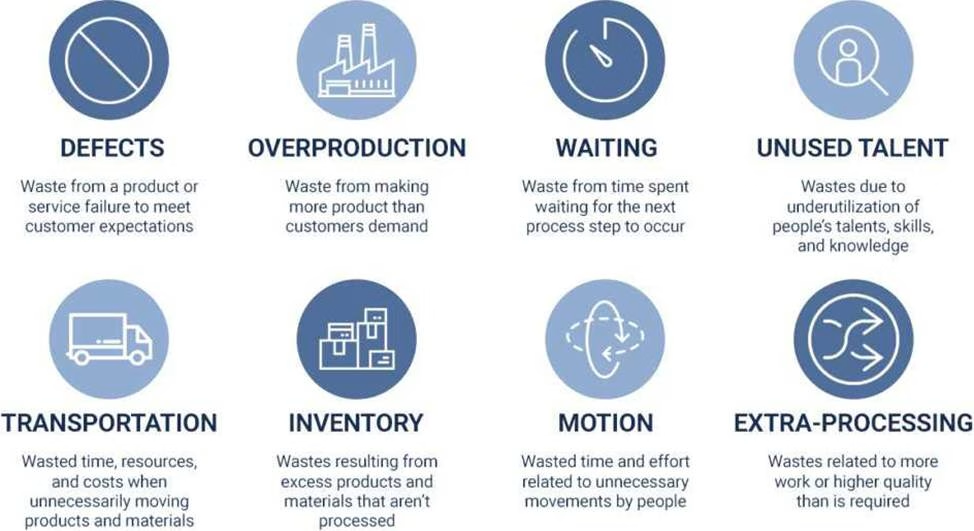Waste in Lean manufacturing is defined as…?
Lean principle focuses on eliminating eight types of waste.
Waste in Lean manufacturing is defined as…?
A . Non value-adding steps in a process
B . Part of activity when operator is idle
C . Part of any activity which is inevitable
D . Rejection of material because of quality related problems
Answer: A
Explanation:
Lean thinking aims to remove wastes from work processes. Before diving into the 8 wastes, it is important to understand what waste is. Waste is any action or step in a process that does not add value to the customer. In other words, waste is any process that the customer does not want to pay for.
The original seven wastes (Muda) was developed by Taiichi Ohno, the Chief Engineer at Toyota, as part of the Toyota Production System (TPS). The seven wastes are Transportation, Inventory, Motion, Waiting, Overproduction, Overprocessing and Defects. They are often referred to by the acronym ‘TIMWOOD’. The 8th waste of non-utilized talent or ‘Skills’ of workers was later introduced in the 1990s when the Toyota Production System was adopted in the Western world. As a result, the 8 wastes are commonly referred to as ‘TIMWOODS’.

Source: The lean way
Reference: CIPS study guide page 127-129
LO 2, AC 2.3
Latest L4M7 Dumps Valid Version with 137 Q&As
Latest And Valid Q&A | Instant Download | Once Fail, Full Refund

